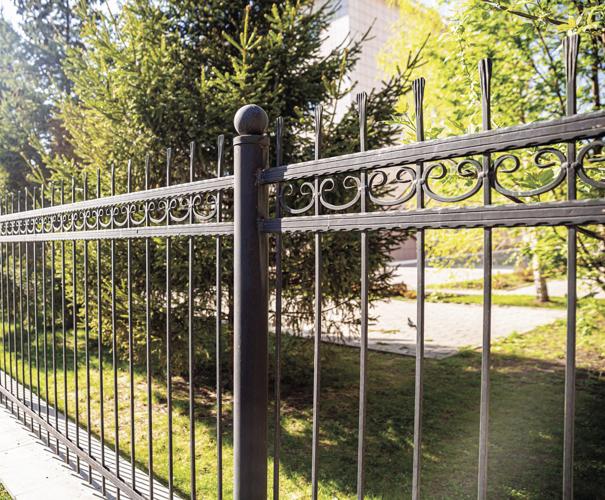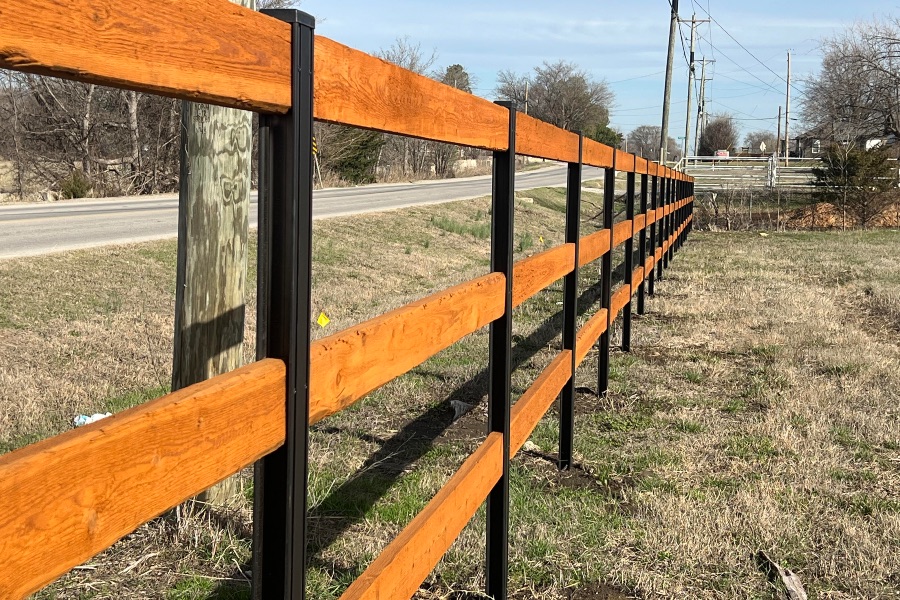All Categories
Featured

Choosing the appropriate secure fencing material for your residential property is a choice that balances aesthetics, performance, and budget. Amongst one of the most preferred alternatives, wood, vinyl, and light weight aluminum each offer unique advantages and disadvantages. Recognizing these can help you make an enlightened choice that aligns with your needs. Below's a malfunction of the benefits and drawbacks of these three common secure fencing materials.
Wood Secure Fencing. Timber fence has been an ageless option for house owners due to its all-natural elegance and versatility.
Pros:. Aesthetic Appeal: Timber uses a cozy and timeless look that complements a selection of building designs. Adjustable: It can be repainted, stained, or reduce into unique styles to fit individual preferences. Affordable: Originally, wood secure fencing can be a cost effective choice contrasted to various other materials. Eco-Friendly: Timber is an eco-friendly source and can be sustainably sourced. Disadvantages:. High Maintenance: Timber needs routine sealing, discoloration, or painting to protect against rot, insect damage, and weathering. Durability Problems: Without appropriate care, timber can warp, split, or degeneration with time, especially in areas with high moisture. Shorter Life expectancy: A wood fence generally lasts 10-20 years, depending upon the sort of wood and level of maintenance. Wood is suitable for those who value a standard look and agree to devote to its upkeep.
Vinyl Fence. Plastic is a contemporary, low-maintenance secure fencing alternative that has expanded in appeal in current years.

Pros:. Reduced Upkeep: Plastic does not call for paint, staining, or sealing and can be conveniently cleaned with soap and water. Weather Resistant: It withstands rough climate conditions without deteriorating, rusting, or warping. Resilient: Vinyl fences can last 20-30 years with minimal maintenance. Selection of Styles: Available in numerous shades, styles, and textures, some plastic choices resemble the look of wood. Cons:. Greater Upfront Cost: Plastic fence can be a lot more pricey at first contrasted to timber. Brittleness in Cold Weather condition: In severe cool, vinyl might split or become breakable. Limited Fixes: Specific panels can be difficult to replace, calling for careful matching to the existing fencing. Vinyl is ideal suited for property owners seeking a sturdy, low-maintenance service with modern-day aesthetic appeals.
Aluminum Fencing. Aluminum fencing is a resilient and lightweight choice, usually selected for its modern-day appearance and flexibility.
Pros:. Rust-Resistant: Aluminum doesn't corrosion, making it a superb option for wet or humid climates. Reduced Upkeep: Needs marginal maintenance and is very easy to tidy. Long lasting: While lightweight, aluminum is solid enough to hold up against many ecological conditions. Long Life expectancy: Can last several years without considerable wear or degeneration. Variety of Styles: Uses a smooth and elegant look, commonly utilized for ornamental or decorative functions. Cons:. Greater Expense: The first investment for aluminum secure fencing is higher than timber or vinyl. Much Less Personal privacy: Aluminum fences are frequently developed with open pickets, making them much less efficient for personal privacy. Vulnerable to Dents: Although long lasting, aluminum can be nicked by solid influences. Light weight aluminum is suitable for those seeking a trendy, long-lasting option that calls for minimal care.
Making the Right Selection. Each secure fencing material-- vinyl, light weight aluminum, and timber-- supplies unique advantages and disadvantages. Your choice must depend on your specific priorities, such as spending plan, maintenance choices, climate, and visual objectives:
If you enjoy a standard appearance and do not mind regular upkeep,Select timber. Choose for plastic if you want a low-maintenance, weather-resistant fencing with contemporary appeal. Choose aluminum if you focus on durability, rust resistance, and a streamlined style. By evaluating these disadvantages and pros, you can pick a fencing product that boosts your residential or commercial property while meeting your useful needs.
Latest Posts
Explore Best Car Repair Solutions at Montclare Auto Repair – Reliable Repairs Await
Published Jun 01, 25
1 min read
Learn Why Chicago Drivers Select Montclare Auto Repair for Reliable Service and Significant Savings
Published May 30, 25
1 min read
Secure Your Home with Quality Residential Roof
Published May 25, 25
1 min read
More
Latest Posts
Explore Best Car Repair Solutions at Montclare Auto Repair – Reliable Repairs Await
Published Jun 01, 25
1 min read
Learn Why Chicago Drivers Select Montclare Auto Repair for Reliable Service and Significant Savings
Published May 30, 25
1 min read
Secure Your Home with Quality Residential Roof
Published May 25, 25
1 min read